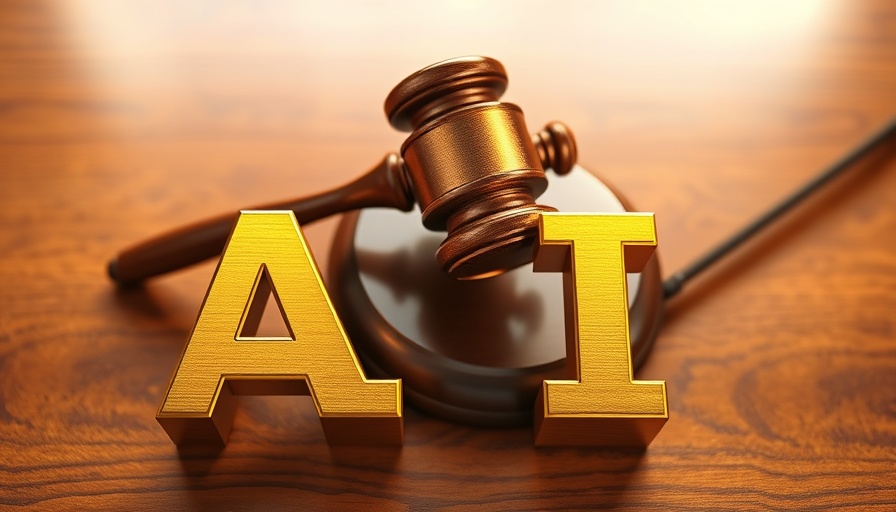
AI Misuse Poses Risks Across Professions
As artificial intelligence (AI) continues to weave its way into various fields, the legal profession stands on the precipice of significant change. A recent ruling from the High Court of England and Wales has illuminated the mounting concerns surrounding the accuracy of AI-generated citations. Judge Victoria Sharp emphasized that while resources like ChatGPT can generate coherent textual responses, there remains a danger in their application without thorough verification. The implications for both legal practice and other industries incorporating AI tools are profound.
Understanding the Ruling and Its Challenges
Judge Sharp's ruling highlighted two notable cases where lawyers faced scrutiny for allegedly referencing fake AI-generated citations. While the specific penalties were not imposed, the court's warning underscores a critical call for due diligence in any field where AI tools are utilized for decision-making or reporting. For healthcare professionals, for instance, this could mean ensuring that AI-aided diagnostics are substantiated with robust clinical evidence. Inaccuracies stemming from such tools can undermine trust in the industry—an especially sensitive issue in healthcare.
Navigating Ethical Responsibilities with AI
The call from Judge Sharp for enhanced diligence should resonate across sectors, not just in law. In healthcare, both IT professionals and clinicians must validate AI outputs against reliable data to safeguard patient care. Implementing AI without a vetting process could lead to potentially severe consequences, similar to those faced by the lawyers involved in the cited cases. The stakes could not be higher when dealing with patient information and treatment protocols, where misinformation can result in dire outcomes.
Implications for Healthcare Technology
The integration of AI in healthcare—from telemedicine platforms to electronic health records—necessitates a framework for ethical and accurate use. Healthcare providers must ensure that any AI applications they leverage adhere to rigorous testing and validation standards, emphasizing accountability. Whether it's utilizing predictive analytics for patient outcomes or deploying chatbots for patient interaction, the legal and ethical implications of data accuracy are paramount.
Importance of Professional Oversight in AI Use
As evidenced by Judge Sharp's observations, communities must recognize the professional obligations surrounding the use of AI technologies. Just as legal practitioners are advised to uphold the integrity of their work, healthcare professionals bear a similar responsibility. Integrating AI into workflows without proper oversight can lead to misinformation, undermining public trust and potentially impacting patient safety.
The increasing reliance on AI tools compels all sectors, particularly healthcare and law, to prioritize the accuracy of information. As AI technology evolves, the practitioners using it must engage in continuous education and safeguard practices that build credibility.
 Add Row
Add Row  Add
Add 




 Add Row
Add Row  Add
Add 

Write A Comment